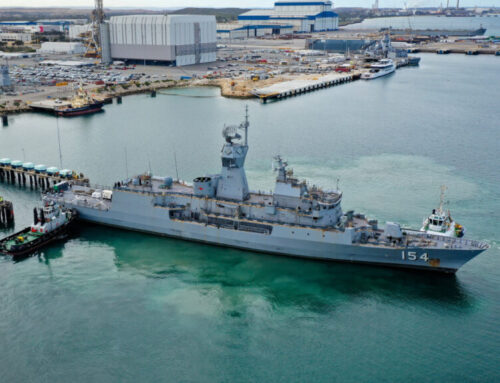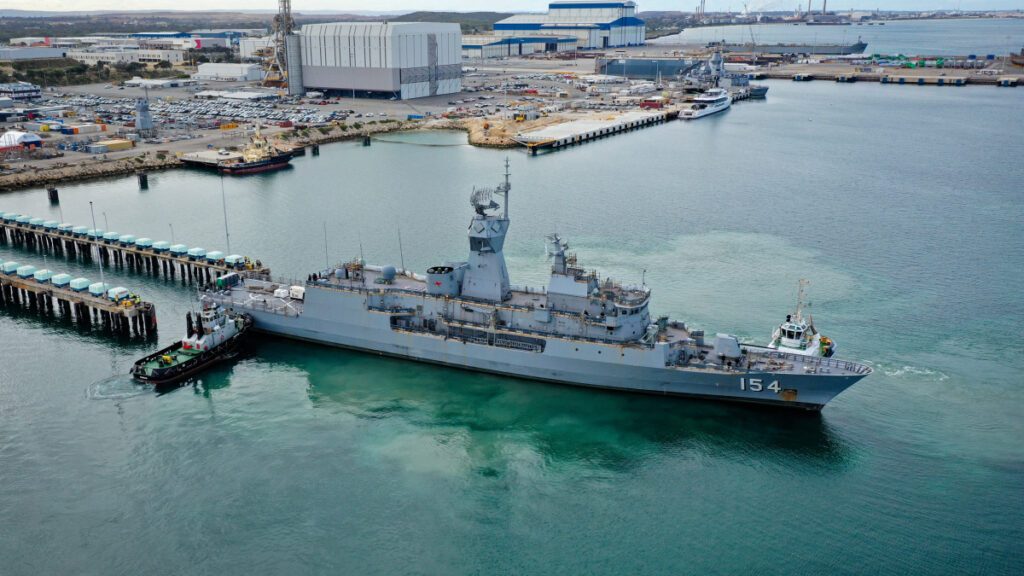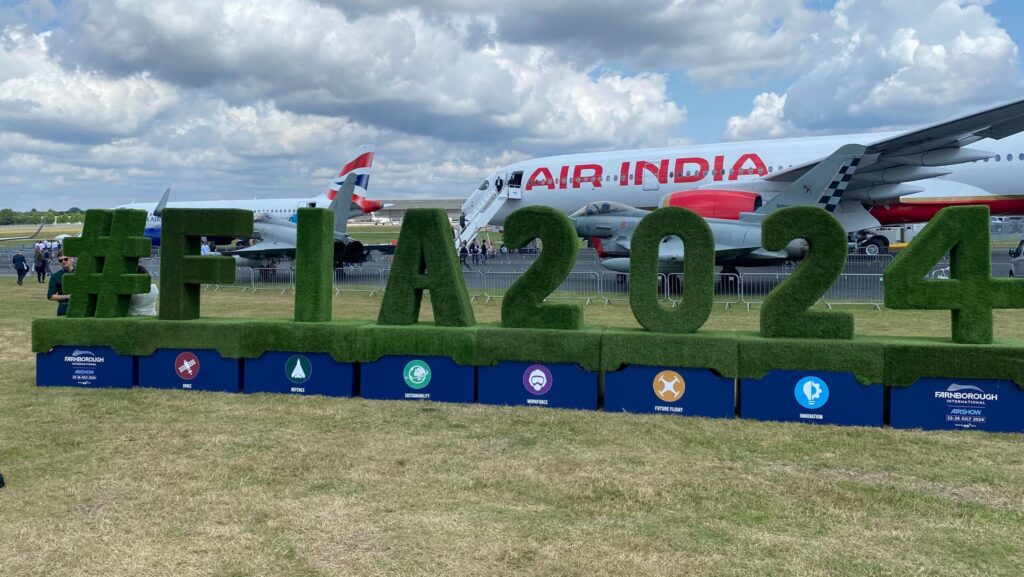Overhead shot of the Swedish Army’s 192nd Mechanized Battalion (Photo:Swedish Armed Forces)
BELFAST — Key Swedish lawmakers are calling for national defense spending to rise to 2.6 percent GDP by the end of the decade, based on new proposed investment of SEK 52.8 billion ($4.8 billion).
The “gradual increase” in funding would be allocated over a five year period, starting next year, said the Swedish Defence Commission today, as it presented its “final report” to parliament.
Swedish annual defense spending already jumped 28 percent this year and currently sits at around SEK 120 billion ($10.8 billion). The latest push to increase military expenditure — which would exceed NATO’s 2 percent GDP target — comes after Nordic neighbour Norway announced a matter of weeks ago that it plans on doubling defense spending over the next 12 years.
In a clear reference to Russian aggression, the Swedish government committee, a cross-party group that reviews and makes recommendations about military policy and procurement, warned in a statement that the “deteriorating security situation” and Stockholm’s entry to NATO last month demand “increased ambition” from Sweden’s armed forces and the delivery of new capabilities at pace.
The lawmakers propose the Swedish Army move to three mechanised brigades and one infantry brigade by 2030. They also call for air defense capabilities to be scaled up to counter drones, additional acquisition of air-to-air and cruise missiles and an uplift in conscription to 12,000 troops in 2032 — 4,000 more than current numbers. Other proposals include the formation of a Norrland Infantry Regiment and the founding of new military units for territorial defence, set up as 20 companies and platoons.
Those recommendations, now endorsed by the lawmakers, are in addition to guidance issued in November 2023 by Micael Bydén, Supreme Commander of the Swedish Armed Forces, which he broadly said was meant to increase “focus” on air defence, develop cooperation within NATO’s Integrated Air and Missile Defence (IAMD) program and boost counter UAS capabilities.
“The Defence Commission would like to emphasise that the submitted proposals may need to be adjusted depending on the development of Russia’s full-scale illegal invasion of Ukraine and the risk of further deterioration of the security situation,” today’s proposal added. “In addition, the Riksdag [Swedish parliament] and the Government may need to reconsider the development of the civil and military defence in the light of Sweden’s NATO membership, including future capability targets.”
A spokesperson for the office of Sweden’s minster of defence Pal Jonson told Breaking Defense in a statement that the government “plans to submit the defence bill later this year, making it possible for parliament to make a decision before end of 2024.”






![The sights from the 2024 Farnborough Airshow [PHOTOS]](https://centurionpartnersgroup.com/wp-content/uploads/2024/07/IMG_8722-scaled-e1721930652747-1024x577-hZjwVb-500x383.jpeg)




